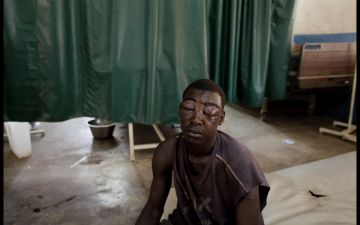In 1999, following decades of military dictatorship, Nigeria was returned to civilian rule. But as the heavy hand of authoritarianism was finally lifted to the general relief of a long-suffering nation, resurgent religious divisions boiled over into violent clashes that have killed at least 15,000 Nigerians to date and forced over one million more to flee their homes.
Widely portrayed both at home and internationally as a savage war of ideological extremists – a front-line battle in a global clash of civilizations – the country's sectarian crisis, in truth, has little to do with religion and a lot to do with desperation, ubiquitous poverty, and the increasingly flawed democracy of a failing Nigerian state. Resolution of the conflict will likely determine the future of Africa's most populous nation.
In late March, journalist Joe Bavier and photographer Bénédicte Kurzen traveled to Nigeria to uncover the real causes of the country's sectarian strife and separate the truth from a fiction that only serves to deepen divisions. Reporting during the 2011 general elections – a period of heightened sectarian tensions – their journey will take them from the epicenter of the violence in the Middle Belt region to northern Muslim strongholds and the southern seat of growing Christian economic and political influence: Africa's mega-city, Lagos.



